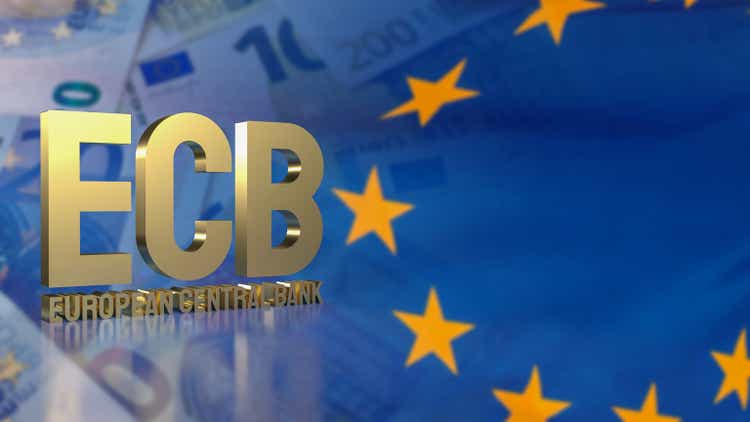ECB Preview: Resisting the Backlash

Nippon
by Karsten BrzeskiGlobal Director of Macro.
When there is a stark discrepancy between market expectations and the ECB’s official commentary, as there is now, every ECB preview must begin with the question ‘What will the ECB do next year?’ ‘What’s the next meeting that will finally lead the market?’. But this preview begins with the question: Why should the ECB actually care?
Macro developments since the December meeting
Since the ECB’s December meeting, macroeconomic news has been broadly consistent with the outlook of ECB staff at the time. To give some credit to the ECB staff (and their model), the re-acceleration of headline inflation in December was fully captured. Only the fact that the euro zone economy is likely to contract again in the current fourth quarter is not fully reflected in the ECB’s forecast. In fact, the ECB’s current growth outlook is likely to be lackluster. It suffers from the same bias as past inflation forecasts: returning to potential too quickly.
Why the ECB is failing to live up to market expectations
Last December, the ECB essentially announced the end of the current rate hike cycle. Financial markets took these signals and the current economic weakness as a clear sign that a rate cut was imminent. But even if actual growth continues to turn out to be weaker than the ECB had expected from quarter to quarter, the eurozone will effectively remain in recession mode for one or two quarters unless it falls into a deeper recession, and unless the ECB continues to fall into a deeper recession. There is no reason for the ECB to react if it expects a return to potential growth later. Certainly not as long as inflation is off target.
Considering inflation in the eurozone, the ECB’s work is not yet done. Inflation developments in the coming months will be determined by two opposing trends. More disinflation and potentially even deflation due to lower demand, but also new inflationary pressures due to less favorable base effects, and new inflationary pressures due to tensions in the global economy. Government intervention in the Suez Canal as well as in some countries, especially Germany.
Against this backdrop of greater upside than downside risks to inflation, a rate cut at this stage makes no sense, at least in the eyes of the ECB. In fact, the new risk of inflation brings back the Arthur Burns argument. No central banker wants to be Arthur Burns, chairman of the Federal Reserve in the 1970s. He is said to have often cut interest rates prematurely, paving the way for a second leg of inflation. Or, put another way, central bankers missed the rise in inflation. They now want to be completely certain that inflation is falling, so by definition they will be well behind the inflation curve.
Why the ECB refrains from providing clearer guidance
In the past, central banks invested a lot of (communication) effort into making things legible and predictable. But the question at this point is whether the ECB should actually care about market expectations. The irony of current market pricing is that it makes the need for real policy rate cuts less urgent. Since early December, financing conditions have eased and real interest rate cuts have done what they were supposed to do. In other words, it supports growth but also increases the risk of inflation. As a result, the more aggressive the market prices for a future interest rate cut, the less likely and necessary such a cut will be. At the same time, given the high level of uncertainty surrounding the growth and inflation outlook, any clearer forward guidance the ECB will give next week could easily become outdated by real-world macro developments. Therefore, the most likely outcome of next week’s ECB meeting will be one that emphasizes data dependence and provides insight into the potential terms of a rate cut without prior commitments.
Content Disclaimer:
This publication has been prepared by ING for information purposes only and without regard to the means, financial situation or investment objectives of any particular user. The information does not constitute an investment recommendation and does not constitute investment, legal or tax advice, or an offer or solicitation to buy or sell any financial product. Read more.
original post



